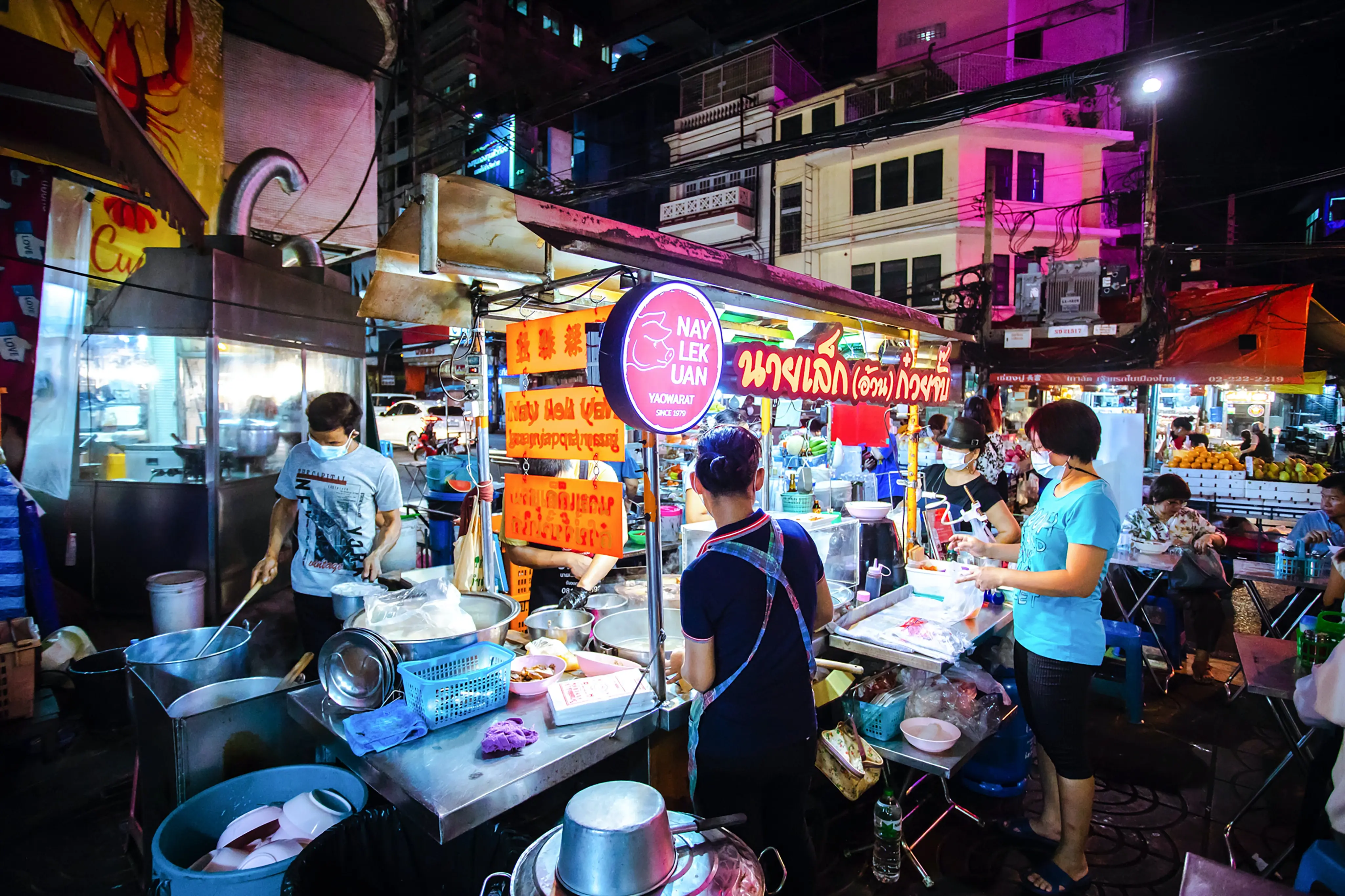Thai food diplomacy

The Nay Lek Uan street food stall in Bangkok's Chinatown. I can't vouch for whether the food is Chinese, Thai, Chinese-Thai, or none of the above. I did, however, think that the photo was great. Photo by Streets of Food from Unsplash.
I learned this awhile ago, but the explosion of Thai food in the United States is the direct result of gastrodiplomacy — a concerted effort by the Thai government to improve international relations through food. Alexandra Domrongchai brings us the details in her Food & Wine piece, You Think You Understand Thai Culture Because You Eat at Thai Restaurants? Think Again. Domrongchai writes:
In 2002, the Thai government launched the Global Thai Program, a diplomatic initiative with the aim of increasing the number of Thai restaurants worldwide. The state provided training programs, grants, and information to Thai investors who wanted to open restaurants abroad. As part of this campaign, Pad Thai — a dish with virtually no cultural history — was positioned as Thailand's national dish and pioneered a culinary campaign funded by the Thai government with 500 million baht ($15 million USD). The government believed that the project would contribute to agricultural and food exports, while also producing foreign income from overseas transactions of goods and services.
That aligns with my memory of Thai food's rise in the U.S. I know that Thai food became sort of ubiquitous in mid-aughties Atlanta. It wasn't quite as widespread as Chinese(-American) takeout in New York, but I'd argue that it became the predominant Asian cuisine of the city.
Domrongchai's main point, however, seems to be this: the marketing of Thai-ness doesn't give Thai people and Thai-Americans the space to express their full humanity, or for everyone to experience the diversity of Thai food.
Thai food
as experienced in the United States isn't always authentically Thai, of course. Much of it is designed to appeal to American understandings of what Thai food is and looks like. Domrongchai again:
The problem is that people often think of Thai food as having one specific taste or way of being made, which can limit what chefs and eaters can do with it. It's a tricky situation because fostering a sense of false authenticity can be good for business, but at the same time it can hold back Thai cuisine.
I gasped at the line about leaving fish sauce out of Pad Thai because of the smell. Granted, fish sauce can be a bit stinky, but that's how you know it tastes good! Fish sauce is a delicious way to add umami and depth to a dish. Squid (a Thai brand) and Red Boat (Vietnamese-American owned) are my go-to brands.
Domrongchai's essay is a reminder of the ways in which food can be political.